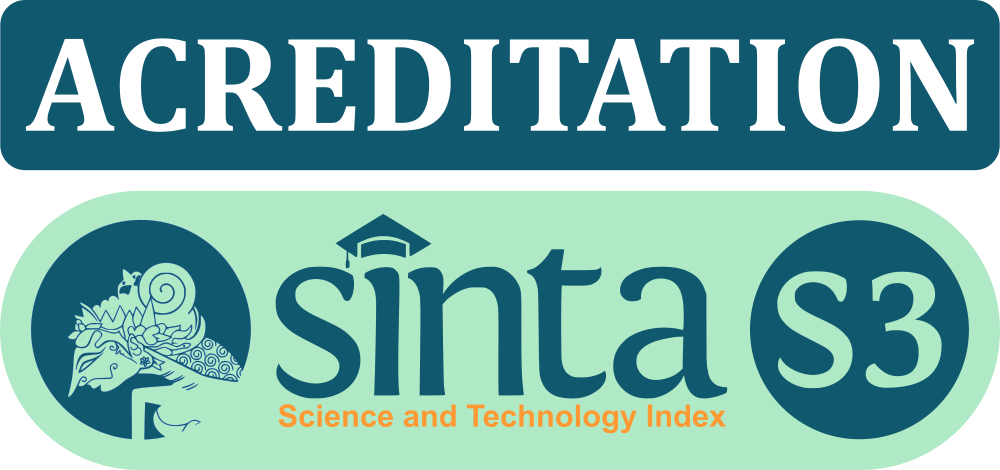PENGEMBANGAN DESAIN SISTEM PROSES PEMURNIAN BIOGAS BERBASIS PALM OIL MILL EFFLUENT (POME)
DOI:
https://doi.org/10.29122/mipi.v13i2.3294Abstract
Pabrik kelapa sawit menghasilkan 0,7 – 1 m3 limbah cair kelapa sawit atau palm oil mill effluent (POME) setiap ton TBS. Untuk pabrik sawit dengan kapasitas 30 ton tandan buah segar per jam, akan dihasilkan 6 ton minyak sawit, 6 ton limbah fiber, 10 ton cangkang dan limbah cair yang dapat menghasilkan listrik 1MW. Proses fermentasi limbah POME ini akan menghasilkan biogas dengan kandungan utama metana (CH4) sebesar 62%. Biogas adalah campuran gas yang diproduksi oleh sekelompok mikroorganisme dengan menguraikan material biodegradable pada kondisi anaerobik. Biogas sebagian besar terdiri atas 50% sampai dengan 70% metana (CH4), 30% sampai 45% karbon dioksida (CO2) dan sedikit kandungan gas lainnya seperti H2S, H2, N2, dan uap air. Untuk dapat memanfaatkan biogas hasil metanisasi dari POME untuk dikonversi menjadi listrik, maka biogas harus terlebih dahulu dilakukan permunian untuk menyesuaikan spesifikasi biogas sebagai bahan bakar gas dengan persyaratan mesin gas yang digunakan. Komponen-komponen di dalam biogas yang perlu dihilangkan ataupun dikurangi meliputi kandungan air, padatan, dan senyawa sulphur. Pada penelitian ini dilakukan pengembangan sistem proses pemurnian biogas dengan menggunakan Bioscrubber untuk mengurangi kandungan gas H2S dan Dehumidifier untuk mengurangi kandungan uap air dalam produk biogas sehingga dihasilkan biogas dengan spesifikasi yang sesuai dengan umpan Gas Engine.
References
Ahmed, Y., Yaakob, Z., Akhtar, P., dan Sopian, K. 2015. Production of Biogas and Performance Evaluation of Exixting Treatment Processes in Palm Oil Mill Effluent (POME). Renewable and Sustainable Energy Reviews, vol. 42 : 1260 – 1278.
Awe, O. W., Zhao, Y., Nzihou. A., Minh, D. P., and Lyczko, N. 2017. A Review of Biogas Utilisation, Purification, and Upgrading Technologies. Waste Biomass Valor. DOI 10.1007/s12649-016-9826-4.
Bharathiraja, B., Sudharsanaa, T., Bharghavi, A., Jayamuthunagai, J. dan Praveenkumar, R. 2016. Biohydrogen dan Biogas - An Overview of Feedstocks and Enhancement Process. Fuel, vol. 185 : 810 – 828.
Brownell, L. E. and Young, E. H. 1959 Process Equipment Design 3ed. John Wiley & Sons. New York.
Choong, Y. Y., Chou K. W., dan Norli, I. 2018. Strategies for Improving Biogas Production of Pal Oil Mill Effluent (POME) Anaerobic Digestion : A Critical Review. Renewable and Sustainable Energy Reviews, vol. 82 : 2993 – 3006.
Kern, D. Q. 1983. Process Heat Transfer. McGraw – Hill Book Company, New York.
Munirah, M. Z., dan Abdul, R. M. 2018. An Overview on Conversation Technologies to Produce Value Added Products from CH4 and CO2 as Major Biogas Constitutuents. Renewable and Sustainable Energy Reviews, vol. 98 : 56 – 63.
Patinvoh, R. J., Osadolor, O. A., Chandolias, K., Horvath, I. S., Taherzadeh, M. J. 2017. Innovative Pretreatment Strategies for Biogas Production. Biosource Technology, vol. 224 : 13 – 24.
Poh, P. E., dan Chong, M. F. 2010. Biomethanation of Palm Oil Mill Effluent (POME) with a Thermophilic Culture Cultivated using POME as a Substrate. Chemical Engineering Journal, vol. 164 : 146 – 154.
Tosati, J., dan Jinsiriwanit, S. 2013. Improving the Quality of Hydrogen Sulfide Contaminated Biogas by Bioscrubber. Current Opinion in Biotechnology, vol. 24S : S48 – S143.
Trisakti, B., Manalu, V., Taslim, I., dan Fauzi, M. 2015. Acidogenesis of Palm Oil Mill Effluent to Produce Biogas: Effect of Hydraulic Retention Time and pH. Procedia – Social and Behavioral Sciences, vol. 195 : 2466 – 2474.
Wandera, S. M., Qiao, W., Algapani, D. E., Bi, S., Yin., D. M., Qi, X. Y., Liu, Y., L., Dach, J., dan Dong, R. 2018. Searching for Possibilities to Improve the Performance of Full Scale Agricultural Biogas Plants. Renewable Energy, vol. 116 : 720 – 727.
Packed Bed Wet Scrubbers : https://www.monroeenvironmental.com/air-pollution-control/packed-bed-wet-scrubbers/
Downloads
Published
How to Cite
Issue
Section
License

This work is licensed under a Creative Commons Attribution-ShareAlike 4.0 International License.
Open Access Policy
MIPI provides immediate open access to its content on the principle that making research freely available to the public supports a greater global exchange of knowledge.
MIPI by BRIN is licensed under a Creative Commons Attribution-NonCommercial-ShareAlike 4.0 International License. Permissions beyond the scope of this license may be available at http://ejurnal.bppt.go.id/index.php/MIPI


















